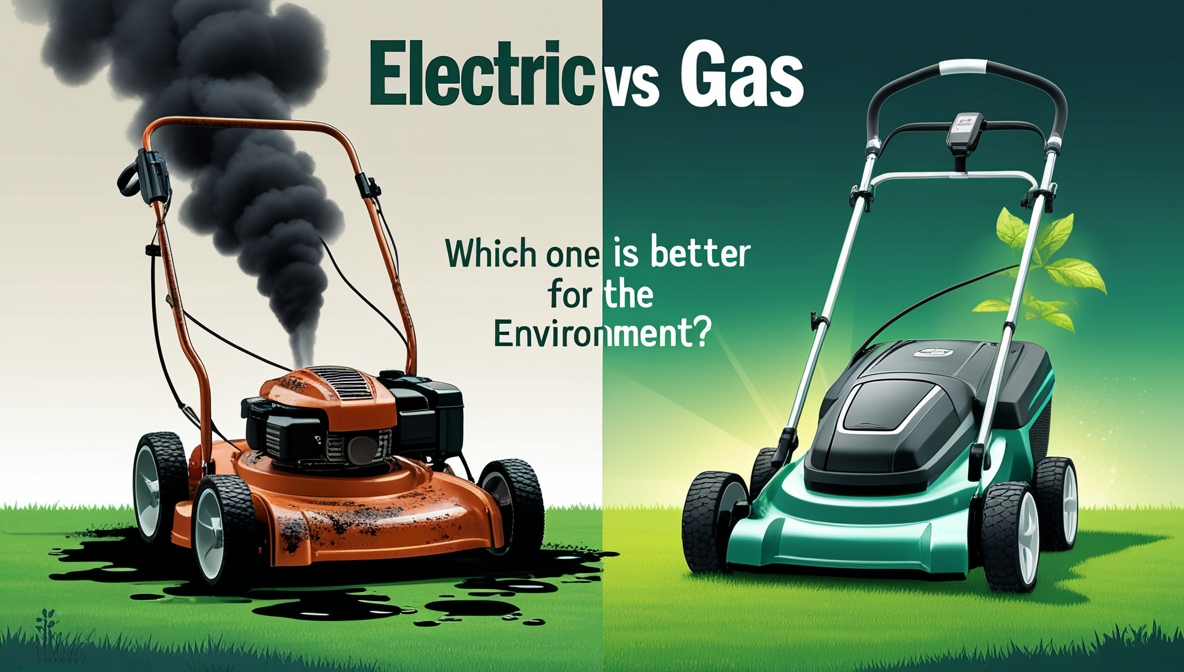The rise of electric lawnmowers has sparked a significant debate among homeowners seeking efficient and environmentally conscious landscaping solutions. Traditional gas-powered mowers have long held their ground, but the advancements in electric technology are compelling many to reconsider. This article explores the key factors to consider when comparing electric and gas-powered lawnmowers, examining performance, environmental impact, maintenance, and long-term costs to determine whether electric mowers truly offer a superior alternative.
Contents
Electric Mowers: A Closer Look
Electric lawnmowers have evolved significantly in recent years, offering a range of models catering to various lawn sizes and user needs. Key advancements include increased battery capacity, providing longer runtimes and reduced charging frequency. Modern electric mowers are often equipped with powerful motors, allowing them to tackle thick grass and challenging terrain. Furthermore, the quiet operation of electric mowers is a significant advantage, particularly in residential areas where noise pollution is a concern. Many models now boast impressive cutting performance, often rivaling gas-powered counterparts.
The convenience of electric mowers is undeniable. No more messy gas refills, and the elimination of the exhaust fumes during operation offers a healthier outdoor experience. Many models include integrated features, like self-propelled capability, making the mowing process smoother and more efficient. Furthermore, the compact design of some electric mowers allows for easy storage and transportation. This accessibility makes them a viable option, especially for smaller yards.
Electric mowers, while increasingly capable, are not without their limitations. The initial investment can be higher than for comparable gas-powered models. Depending on the desired cutting power and the size of the area, a suitable battery capacity might be required, impacting the purchase price. Furthermore, the charging time can be a factor, particularly for larger lawns requiring multiple charges.
The variety of available electric mowers caters to diverse needs. From lightweight models ideal for smaller yards to powerful units equipped with advanced features, consumers have a wider range of choices than ever before. This means electric mowers are now truly capable of handling a wider range of tasks.
Performance Comparison: Electric vs. Gas
Gas-powered mowers typically boast greater power and cutting capacity, particularly when dealing with thick, overgrown grass. Their inherent power makes them suitable for managing larger lawns and tackling challenging terrain with greater ease. The instantaneous power delivery is an advantage for users who regularly mow tough or large areas. Gas-powered mowers generally provide a faster cutting speed.
Electric mowers are becoming increasingly competitive. Modern electric models can effectively handle a considerable amount of grass, and their cutting performance is comparable to gas-powered counterparts in many scenarios. Self-propelled models offer considerable assistance in larger lawns, making the cutting process more efficient. The cutting precision of electric mowers is also improving, producing clean, even cuts.
The range of an electric mower is limited by battery capacity. This means that users may need to recharge or swap batteries in the middle of a mowing session. Gas mowers, on the other hand, can handle larger lawns without interruption.
However, the quiet operation of electric mowers is a significant advantage, especially in residential areas or when working around sensitive environments. The lack of emissions during operation also provides a clear environmental benefit.
Environmental Impact: Key Differences
Gas-powered mowers rely on gasoline, a fossil fuel, and their exhaust contributes to air pollution. This can have detrimental health consequences for individuals and contribute to a larger environmental footprint. The noise associated with gas-powered mowers can also be a disturbance, particularly in residential areas or during early morning or late evening operations.
Electric mowers, on the other hand, produce zero tailpipe emissions during operation. This reduces the environmental impact and contributes to cleaner air, especially in densely populated areas. Electric mowers’ quiet operation is a significant advantage for residential areas, minimizing noise pollution.
The production and disposal of batteries for electric mowers can have environmental implications. However, advancements in battery technology and recycling programs aim to mitigate these concerns. The long-term environmental impact of electric mowers is generally more positive than that of their gas-powered counterparts.
The manufacturing processes for both electric and gas-powered mowers have environmental implications, but the impact is different. Electric mowers rely on different materials and processes, and their overall footprint depends on the responsible sourcing of components.
Maintenance and Cost: Long-Term View
Gas-powered mowers typically require more maintenance, such as regular oil changes, spark plug replacements, and filter upkeep. These tasks can be time-consuming and require some mechanical expertise. The cost of these maintenance items can add up over the life of the mower.
Electric mowers require less maintenance, primarily focused on battery care and cleaning of the cutting deck. This significantly reduces the time and cost associated with upkeep. The potential need for battery replacement over time should also be considered.
The initial purchase price of an electric mower is often higher than that of a comparable gas-powered model. However, the long-term maintenance costs are lower. The cost of gasoline, including fluctuations in prices, should also be considered. The overall cost of ownership for electric mowers tends to be lower over their lifespan due to reduced maintenance and fuel costs.
The availability of replacement parts and the potential for repairs may vary depending on the model and manufacturer. The warranty and support offered by the manufacturer should also be considered when evaluating long-term cost implications.
Ultimately, the “better” choice between electric and gas-powered lawnmowers depends on individual needs and priorities. Electric mowers offer a cleaner, quieter experience with lower long-term maintenance costs, while gas-powered mowers often provide greater power and versatility for larger or more challenging lawns. Carefully weighing performance needs, environmental concerns, and long-term cost implications will ultimately guide the best decision for any homeowner.






